
Peggy Seeger. Never did become an engineer…did do most other stuff. Respect.
Songwriting meets a truly inspirational songwriter who at the age of 79 is itching to get back on the road
The word ‘legend’ gets bandied about a lot in music circles, but one woman with a strong claim to that much-abused title is Margaret ‘Peggy’ Seeger – an artist who has both championed and reimagined traditional folk music for over 60 years, while somehow finding time to also be a committed anti-war, anti-poverty, environmental and feminist activist.
Here’s what the offical ‘short bio’ on her website has to say about her:
“Born in 1935, Peggy is Pete Seeger’s half-sister and Ruth Crawford Seeger’s daughter; her first life partner was the English songwriter Ewan MacColl, who wrote First Time Ever I Saw Your Face for her and to whom she bore three children. She has nine grandchildren. She is known for her renditions of Anglo-American folksongs and for her activist songwriting, especially in the field of feminism. Her best-known pieces are Gonna Be An Engineer and The Ballad Of Springhill, which latter is rapidly becoming regarded as a traditional song. After living 35 years in England, she returned to the USA in 1994, took up residence in North Carolina and toured the USA extensively. She moved to Boston in 2006 to teach songwriting at Northeastern University. She moved back to England (Oxford) in 2010.”
With Ewan McColl she formed the influential Critics’ Group in the 1950s, as well as producing the BBC documentary series and accompanying albums The Radio Ballads. Her songs have been adopted as protest anthems from Aldermaston to Greenham Common, as well as by the pro-choice movement in the US, and she’s recorded nearly 50 albums, either on her own or in collaboration with Ewan McColl, Mike Seeger and others. Today, at the grand old age of 79, she continues to tour, playing live concerts and hosting seminars and workshops – though health problems earlier this year forced her to curtail commitments on that front.
Nevertheless, when we spoke to her we found her eager to get her next operation out of the way so that she can get back on the road. In person she is affable and open, if a little schoolma’am-ly. You get the sense, when speaking to Peggy, that you’re talking to one of your ‘elders and betters’ – but then, quite frankly, you are!
Dear readers, allow us to present Peggy Seeger – a true folk legend.
We were scheduled to chat back in April, but then your health suddenly deteriorated. How are you doing now?
“To say deteriorated is… it deteriorated violently. This is the first year in my whole life where I’ve not performed for a year. It knocked me down to the ground. But I’m not too bad now. I have another operation in three weeks and I think that’s going to settle my score with my small intestine.”
Glad to hear you’re surviving! You’re something of a survivor in the music industry, too…
“I don’t look on it as an industry, I must say; it wasn’t an industry when I came into it. I first realised it was an industry when I was teaching songwriting in Boston. That’s when I realised how much of a business it had become. Not only in administrating it, but in actually writing it.”
Let’s say the music arena, then…
“I like that. Well… the fact is that I’m a lousy business person. I don’t know how to sell myself. My stepdaughter Kirsty McColl, when she was 18 she had six songs that she’d written. And she walked into a music publisher with a lawyer and a manager, and said, ‘I’ve got some songs I’d like you to hear’. And they loved the song and said, ‘What else have you got?’. So she said ‘Oh, I’ve got lots at home!’ and then she went home and started writing.
“You have to run like hell to stay in the same place”
“Now that’s what I call dealing with the music arena, as you put it, on its own terms, and I’ve never done that. I’ve never had a manager, although I’ve sung on stage since I was 17 and I’m now 79. A lot of it is laziness, some of it is that the scene changes so quickly, you really have to… it’s like Alice In Wonderland, you have to run like hell to stay in the same place. So I’ve stayed in the same place, and the same place has sort of moved into history, if you like. I’m kind of like a dinosaur.
Let’s rewind then to the beginning of your career, and how you got started in music?
“My mother was a piano tutor and deeply creative, and she started my piano lessons when I asked at the age of six. But I’ve had music in my life since I was very, very little. When I was two I got strep throat and they took me into hospital, where I immediately caught whooping cough. And they isolated me, so my parents couldn’t see me, but they heard me down the hall singing [folk standard] Barbara Allen. So the music was in the family and I osmosed it. I drank it in.”

Everything Changes
And fast-forwarding seven decades or so, your new album Everything Changes has just been released. Tell us about that…
“Okay, the new album… it’s strange, it fell together almost by itself. I made a shortlist of songs that I wanted to go on there, and I got together with my son Callum, and we chose the ones that… it’s a funny thing, it’s almost like a magnet that seems to draw the songest fields that are near it. And the album pulled together very quickly – I would never have thought in the past of only having 11 songs on an album. I’ve actually had 22 songs on an album once, but this just about takes you to your limit of concentration I think, because it’s very wordy, and very dark.
“I hadn’t realised until it was nearly finished just how dark it was! We’d finished a recording session and I sat down at the piano and played Do You Believe In Me, which I didn’t write but which is one of my favourite performance pieces, and the band was entranced. They said, let’s just give it a go. We had two hours left, and in that two hours they whacked together an accompaniment and we recorded it. So that’s a light spot on the album.
“So the album in the beginning seemed to just fall together, and then we injected it with Do You Believe In Me, which is an insane song. Listen to the album all the way through: just when you being to feel like slitting your throat, along comes Do You Believe In Me, which lightens it so we can have a bit more darkness.
“Often, putting the songs in order is a nightmare. Anyone who’s made an album will tell you this: knowing what to start with, what to end with, the order that the songs go in… it does matter very much what order the songs go in. But this one… we just threw everything up in the air and it all came down in the order that it should be almost right away.”
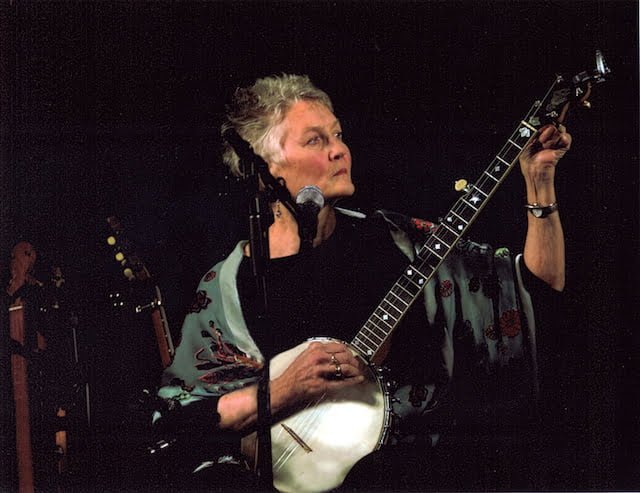
Playing the banjo onstage – one of six instruments Peggy can play
The head of Radio 1 recently declared the album dead and said that playlists are the future. But as you say, with a playlist you don’t hear the tracks as the artist intended…
“Is the album dead? I don’t know. I don’t know how, for instance, people listen in the car. Do they plug their iPod into the car and then just let it do what it wants? I put an album into the CD player, that’s what I do, but I don’t know how many people still do that. I know you can make up an album yourself in iTunes, but whether you think as much about what order it is on Toast before you burn your CD, I don’t know. But it is very important, what follows what.
“It’s like a concert. In a concert you have to work out what song follows what song, you have to figure out ‘Okay, how does the audience feel at this point? If I’d just heard someone singing the song I’ve just sung, what would I like to hear now?’. Sometimes they want the same kind of thing to follow on, sometimes they need to hear the complete opposite. Sometimes, if it’s a very serious song, they need to think, so you wait for five or six seconds of silence while the applause dies down, and then you maybe say something. It’s not that you’re leading the audience – the audience is leading you.
“So when you’re putting songs in album order, you have to think what would I like to listen to after, say, Swim To The Star, which is about the Titanic. It’s a song about 1,000 people dying, and about the women and children sailing off into the sea. What do you want after that? You want a comforting song, so that’s why we’ve put Go To Sleep there, which is another light spot. And then after Go To Sleep you don’t want to leave it there, you want something that jars people, so you put in Nero’s Children, with a gentle beginning to ease into it. There’s a lot of thought goes into it.”

Folksploitation
You also made an album with experimental electronica producer Broadcaster quite recently – 2012’s Folksploitation. Tell us about that…
“I found that fascinating. He wanted some unaccompanied songs, so I went to his house, we drank a couple of bottles of wine and I just sat down and sang pretty much any song that came into my mind, including some that I usually accompany, which I found interesting. And he picked some songs out, made his first stabs at it and said what do you think?
“I think it’s extraordinary what he’s done. With several of the tracks on Folksploitation, he’s combined two or three songs to make it. I don’t know how he works it all out but it takes him a long time to make a track. And he does it all in his little flat, on quite old, relatively simple equipment. He doesn’t have one of these big desks where you have to stretch out both arms to reach all the buttons, it’s a very simple set-up he’s got.
“He did another album before that called Primary Transmission, where he used unaccompanied voices, mostly Ewan McColl but mine as well, from the Radio Ballads project. He asked my permission first. I don’t own that material, but he did ask my permission first, which was good because people have done things with my songs without asking permission and put them out.”
We talked recently to Roger McGuinn and his project The Folk Den. Was Folksploitation similarly motivated – any attempt to keep the old songs alive?
“Well, Folksploitation is so far out, you would never even think of calling it folk music. It bears no relation to folk music. It uses folk music as embryonic source material, and literate musicians have been doing this for a long time. Percy Grainger did it, Benjamin Britten did it, Vaughan Williams did it, Gustav Holst did it… took folk tunes and just put them into a classical framework. At which point, to be quite honest, in my opinion it’s not folk music any more, it’s something else.
“In fact, a lot of what I do isn’t really folk music… although the earliest songs I wrote were kind of like folk songs. There’s been a number of different stages for me in my songwriting career. The first was writing new words to an old tune that already had the basic approach. For instance one of my earliest was called There’s Better Things To Do. It was a gospel song, but I changed it into an Aldermaston song: I took the tune, I took the opening words and I took the approach. Then after that I wrote a song that was based on song of Ewan’s, about a woman’s lover going off to war. It was my attempt to discuss that because it’s such a common subject in folk songs.

Peggy in 1957
“So then you study what kind of language was in those songs. They tend to eschew adverbs, they have limited adjectives, they mostly consist of verbs and nouns. People are doing things. You don’t have a lot of multi-syllabic words in the basic, old folk songs – they were songs by and for an illiterate people. When the broadsides came along – sheet music and lyrics – songs began to get more complicated, because if you’re selling songs by the yard, you want a long song. So long songs worked very well for that, and those were very complicated songs but often not nearly as well crafted as the folk songs.
“As a songwriter, I am somewhat unique”
“And because I had a classical education, I began to experiment. I don’t know if you’ve heard any of the Recitates that I wrote? They’re not like folk songs: they borrow a bit from them but they go into different keys, they slow down at the end, they have more complicated chord accompaniments. There’s lots that I’m modest about, but one thing I’m not modest about is that as a songwriter, I am somewhat unique. Because I’ve made songs that are so far out, Progress Train for instance, and I’ve also made songs like The Ballad Of Spring Hill, which is now taken as a folk song in Nova Scotia.
“So I have these two parameters in my life. I heard folk songs from the time I was two or three, and my mother was a classical composer and I played classical piano. At one point I was playing four or five hours a day, and I was good! I’m not good any more because I don’t play, but I have the classical knowledge to do a whole stack of very odd things.”
So you see yourself as having almost a split personality when it comes to music?
“Yes, I have two faces. I’ve written songs that literally sound like folk songs, because they were meant to be that way. If I’m lucky, maybe they’ll be taken up as folk songs, and looked on as folk songs in the future because they’ll forget who wrote it. And that to me is a total honour. Who was it said that he’d give anything to write an anoymous ballad? To have it taken up by that many people.
“Ewan McColl’s song The Shoals Of Herring… that’s a song that was written for one of the Radio Ballads, but because he wrote it virtually from the words of a herring fisherman, it sounded very authentic, and that song is now regarded in Ireland as a folk song, where they call it The Shores Of Erin. This is an unbelievable honour: they sing that there as if it was an old traditional fishing song, but it was actually made up in 1961!
“I know how to make up a song that sounds like a folk song”
“And I know how to do that, I know how to make up a song that sounds like a folk song, but I also know how to write something like Nero’s Children. That’s not a folk song – it never will be. Nor will Swim To The Star.”
Yet you clearly do still think the traditional songs are important…
“Oh Lord yes. That’s why I try not to change the old songs, I sing them straight. When you’re trying to keep a tradition alive – which is the way I look at my singing and recording traditional songs – you try to keep them alive with the intention of the makers. You don’t do Beethoven’s Quartets on a trombone, an ocarina, kettle drums and a piccolo, you do them on the instruments that he wrote them for. If you want to be experimental, then say okay, this is experimental, this is not what Beethoven meant. But if you’re going to play it as Beethoven meant it, it’s respect for the person who made it to try and keep it the way it’s meant to be.”

Peggy onstage with brother Mike Seeger and half-brother Pete Seeger
Words are clearly important to you… do you usually write lyrics first?
“Good Lord yes – I don’t start with chord progressions! A lot of songwriters these days start with chord progressions. Some people start with a drum track, and then add chords, and THEN they come up with the words. Well I come up with the words first, nearly always – occasionally it will be the tune. But my son Callum, he usually starts with chords, so on the new album we worked it out that I started contributing to the chords and he started contributing to the words, and it worked brilliantly. Flowers By The Roadside is a song I would not have been able to write by myself, because it’s so dependent on Callum’s knowledge of a different kind of music.”
You enjoy co-writing then?
“Oh yes, you bet! I love co-writing, it’s quite wonderful. Three of the songs on the album are co-written… or actually four. Everything Changes, I made the basic song, then my partner Irene Pyper-Scott suggested this, that or the other, then my son Callum made some suggestions and some chord changes, so that’s one of them. I wrote We Watch You Slip Away with Kate St John. She’s a lovely musician who’s just married my oldest son, she plays in Marianne Faithful’s band, and her mother was put into a nursing home and the song’s about her mother and dementia. She and I wrote that together. And then Callum and I wrote Swim To The Star together.
“The album also has a song on it called Over The Mountain To You, and I made the tune up when I was 10, on the piano, and I made the words up when I was 76 or 77. I find that very amusing – I’m co-writing with myself. But I’m Gemini, so that works!”
“I don’t usually write on an instrument”
You play seven instruments, is that right? Which do you write on, mostly?
“No, six. Erm… it depends. I don’t usually write on an instrument unless I’ve got a particular musical idea. The piano is the one I know best – I can find my way round on the piano very easily. Guitar I don’t normally play much above the fifth or sixth fret, the banjo I can play all over the place but I don’t really use it for songwriting. I usually get an idea, then I start writing the lyric, then I figure out if it’ll be accompanied or unaccompanied, and then I’ll start writing and playing it on the instrument it’s going to be on.”
What do you think has been the secret of your musical longevity?
“Partly it’s that I’ve lasted on my own terms. I’ve never gotten worldwide attention for anything, and I thank my lucky stars for that. I think there’s nothing worse than being famous. Really. My brother Pete wasn’t famous but he was well known – very well known – and he couldn’t walk the streets of New York without being stopped by somebody. They didn’t close department stores so he could shop there, but to have people recognising you and constantly coming up to you… I think for me that would be a life of hell.”
Billy Bragg said to us recently that a lot of people that write protest songs “spend too much time on the protest and not enough on the song”. Do you agree?
“Yes, I absolutely agree. We need more songs that everybody can sing. Billy has made some of those, some wonderful ones, but an awful lot of protest songs do rather sound like political tracts put to music. A song is different, a song is like a chemical reduction where you put the thing over the burner and you reduce it down to its basics. People don’t need to be lectured. People know what they’re supposed to do – we all do know what we’re supposed to do, we just don’t do it.”
What’s the best song you’ve written, do you think?
“Oh dear… well the one that’s most popular is I’m Gonna Be An Engineer. But I don’t pick out. I’ve written some love songs that I’m intensely proud of, I’ve written some little political snippets that I’m very proud of. There’s no particular one… there’s one that people like better than any other but I think that’s because it hit the political scene at the right time.”
…and what song do you wish you’re written?
“A lot of Paul Simon’s early ones. I’d love to have written Hearts And Bones or Train In The Distance or Bridge Over Troubled Water. I absolutely love his work.”
Interview: Russell Deeks
Peggy’s most recent album Everything Changes is out now on Red Grape Music. Below, you can watch the video to Swim To The Star.

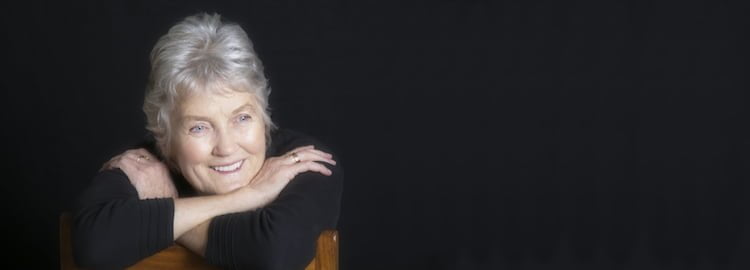



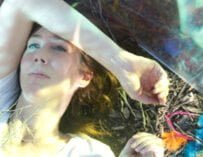
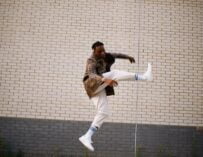

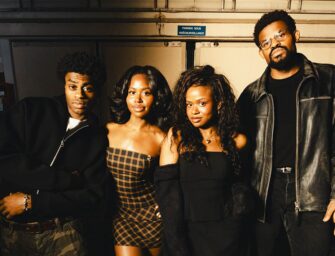


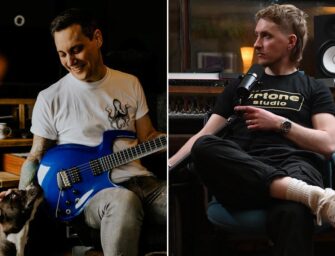























Related Articles